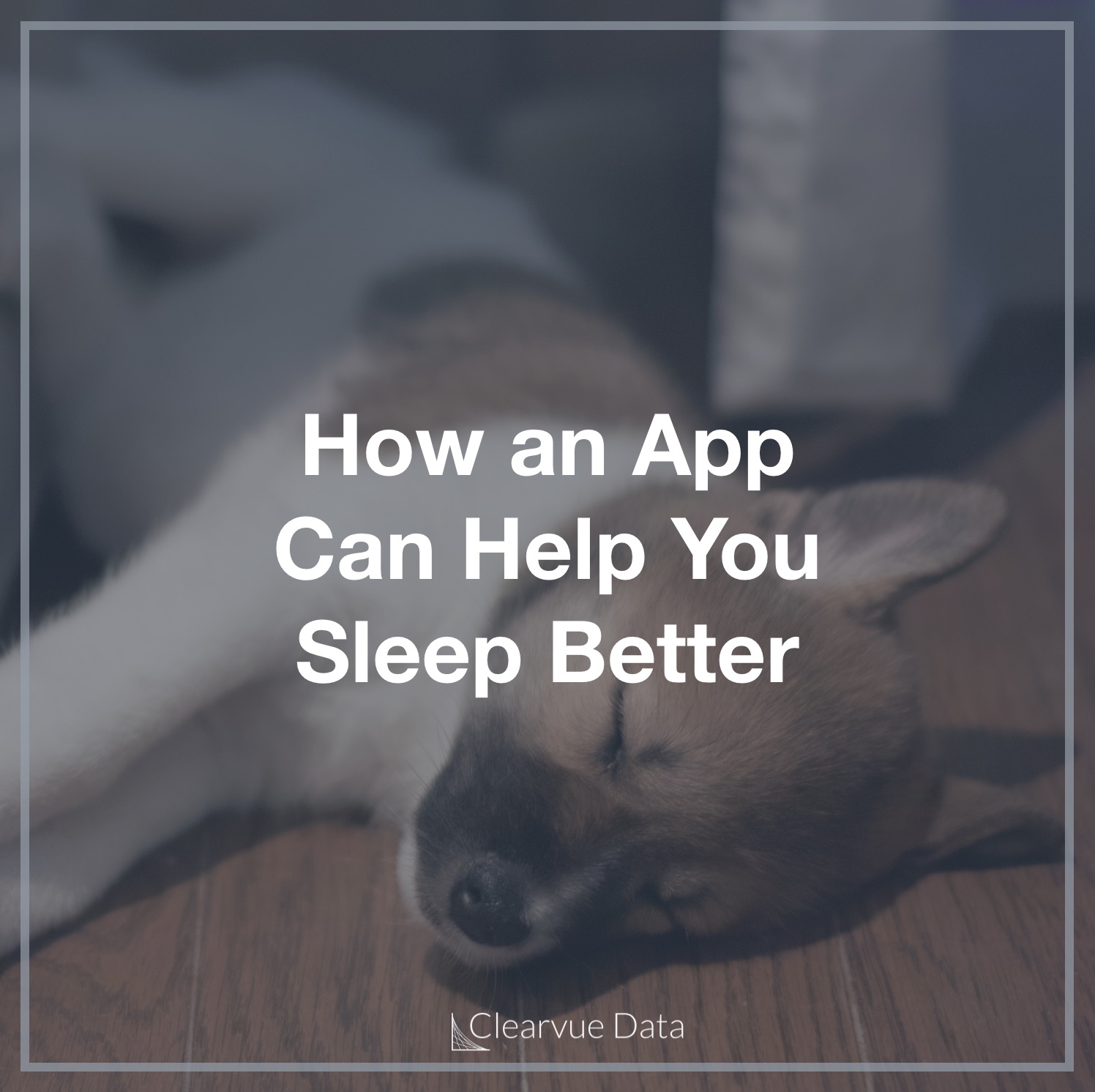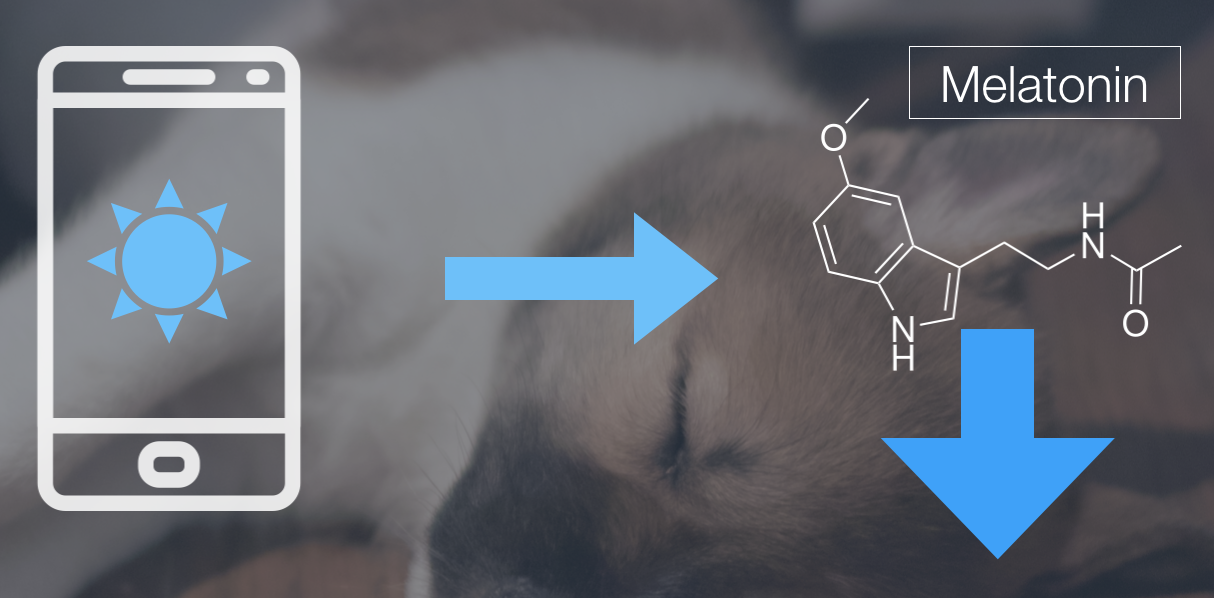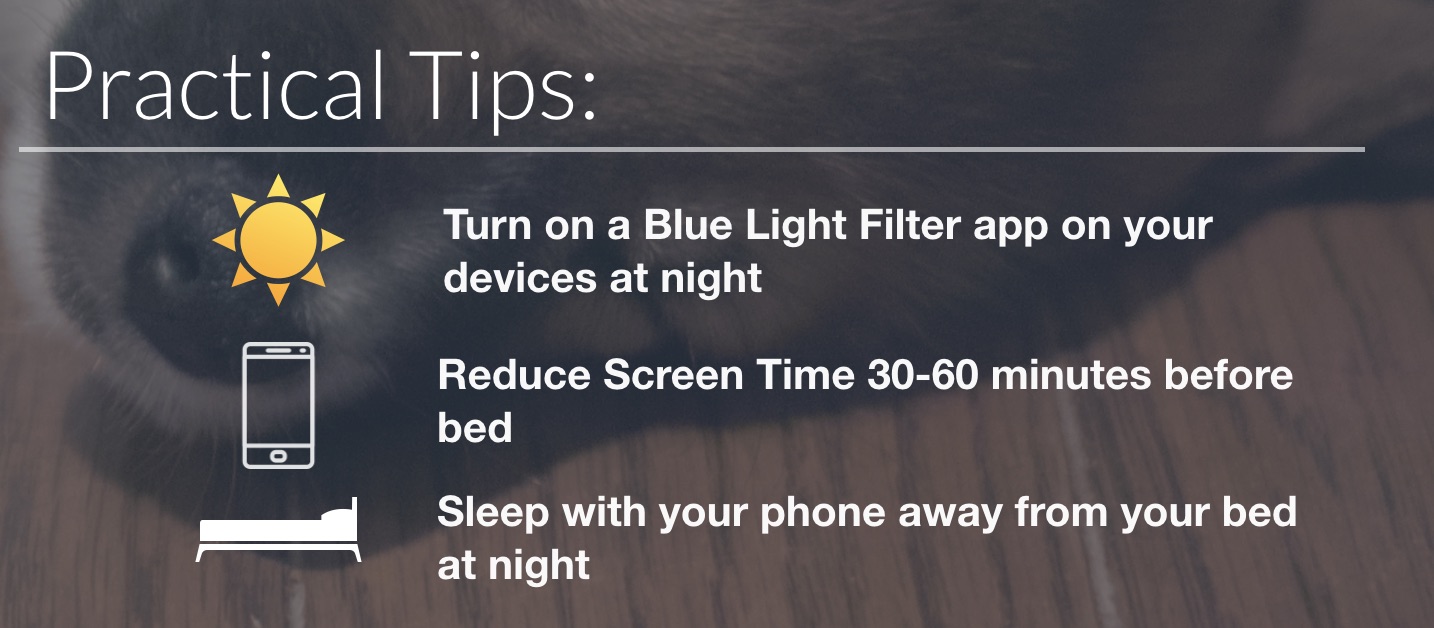Late night phone and computer use have been clearly linked to worse sleep.
Our device screens suppress our body's natural sleep signals.
Blue light filtering has emerged as a possible solution to get our sleep back on track.


Before light bulbs and computers, our ancestors used to wake up at sunrise and sleep at sunset.
Today, thanks to visionaries like Thomas Edison, Nikola Tesla, and Steve Jobs, we can stay awake for longer, and Reddit well into the night.
But, while our habits have changed, our bodies have not. We remain tuned in to the rhythms of the sun for signals to sleep and wake up.
When we see blue light, our brain interprets this as the sun being out, and keeps us awake. If you’ve ever had trouble sleeping after going on your phone, you probably know how this feels.

A highly cited study in Pediatrics, one of the most respected medical journals, studied 2048 kids to see whether sleeping near phones and TVs affected sleep.
It turns out this is actually pretty common. 54% of kids slept near a small screen, including phones, and 75% slept in the same room as a TV.
Unsurprisingly, kids who slept near their phones or in the same room as TVs showed a significant decrease in their sleep time and sleep quality. Kids who slept near their phones reported sleeping an average of 20 minutes less every night compared to kids who didn't. They were also 40% more likely to report insufficient sleep.
Part of this may be due to distractions from texts and notifications on their phone.
However, this effect appears to apply to TVs as well, which suggests that some of this effect may be a result of bright screens reducing our sleepiness. Kids who slept in the same room as TVs reported approximately 18 fewer minutes of sleep per night.

One potential contributor to this effect is the effect of light on our sleep signals.
The current theory is that our brains respond to light by reducing the production of melatonin, the body’s hormonal sleep signal. This served us well before the industrial revolution by setting our internal clocks, our circadian rhythm, to the rhythms of the sun. But, in the digital age, this means using our phones and computers at night can give us insomnia.
For those of us who love our iPhones and Androids, it turns out there may be an effective solution.

Recent studies have shown that it’s not just the amount of light that affects our sleep, it’s also the color of the light.
Volunteers at Columbia University were randomized to wear either blue light blocking glasses or clear glasses to see whether blocking blue light benefits sleep.
Those who wore the blue light blocking glasses had approximately 50 more minutes of sleep every week. They also reported an average of 4.3/7 on a sleep soundness scale, which was significantly higher than those who wore clear glasses (3.3/7).

The best solution to insomnia from your phone is of course reducing your screen use before bed. Try keeping your phone away from your bed, so you’re not tempted to reach for your phone while trying to fall asleep, and reducing phone and computer use 30-60 minutes before bed.
However, for those us who love curling up and catching up on some last minute Instagram before bed, there is a practical solution that can help you reclaim some of your lost sleep.
Nearly all devices today have a free app or setting to reduce the blue light on your device. We've linked to some of our favorites below:
Android: Instructions on Activating the Built In Night Mode on your Phone
Iphone: Instructions on Activating the Built In Night Mode on your Phone
Windows: How to use the Built-in Blue Light Filter in Windows 10.
References
1) Falbe, Jennifer, et al. "Sleep duration, restfulness, and screens in the sleep environment." Pediatrics (2015): peds-2014.
2) Kimberly, Burkhart, and Phelps James R. "Amber lenses to block blue light and improve sleep: a randomized trial." Chronobiology international 26.8 (2009): 1602-1612.